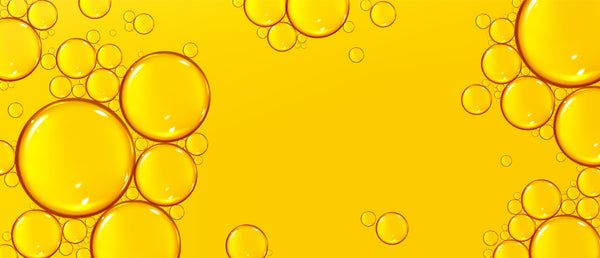L-carnitine is a popular ingredient used in several weight-loss supplements. But what is L-carnitine, what are its benefits, and what’s the correct dosage when it comes to consuming this ingredient? Are these or similar questions living rent-free in your head? Then you’re at the right place, as this blog has all the answers you need.
What is L-carnitine?
L-carnitine, or levocarnitine, is a naturally occurring amino acid derivative essential for fat metabolism. It is made from the amino acids lysine and methionine in the liver and kidneys. L-carnitine promotes the transport of long-chain fatty acids across the mitochondrial membrane of cells, where they can be oxidized and used as an energy source. Without proper quantities of L-carnitine, the body is unable to utilize fat for energy adequately. L-carnitine also aids in the removal of harmful chemicals from the body, such as excess acyl-CoA molecules produced during fatty acid metabolism. It also maintains adequate levels of coenzyme Q10, an essential antioxidant and energy-producing chemical, in the body. L-carnitine has been demonstrated to improve exercise performance, reduce muscle damage and pain, and promote recovery after severe physical activity, in addition to its metabolic effects. It may also be suitable for cardiovascular health and cognitive function. Overall, L-carnitine is an important component that helps improve the body's metabolic rate and has various other health benefits.
How does L-carnitine work?
L-carnitine’s primary role is promoting fat oxidation, i.e., the conversion of fat into energy. It does this by saving the stored glucose in the muscles (muscle glycogen) and using the fat storage instead. This way, L-carnitine helps burn fat faster, thus assisting in better weight loss. The fats you consume are broken down into smaller molecules called fatty acids, which are further processed inside the mitochondria to produce energy. L-carnitine does the job of carrying long-chain fatty acids (LCFAs) from the cytosol (an aqueous component of the cytoplasm in which all cell organelles are present) to the mitochondria, where they are oxidized to form ATP (adenosine triphosphate) molecules, a.k.a. our energy currency.
Types of L-carnitine
Carnitine is an umbrella term that includes a bunch of different amino-acid derivatives. L-carnitine is one of those derivatives with two significant types: acetyl L-carnitine and propionyl-L-carnitine.
Both of them occur naturally in our bodies and are somewhat similar to L-carnitine, except that acetyl-L-carnitine contains an acetyl group, and by the same token, propionyl-L-carnitine contains a propionyl group. Well, let's not get into the chemistry part of it. Both types of L-carnitine show excellent antioxidant properties that protect you from the harmful effects of free radicals (molecules with unpaired electrons that can cause cell damage). Besides being a good antioxidant, ALC offers neuroprotection, thus preventing cognitive disorders like Parkinson’s, Alzheimer’s, and dementia. Additionally, studies have proven that oral ALC supplementation can reduce high blood pressure, thus maintaining good heart health.
PLC is said to have more therapeutic benefits compared to ALC. It plays a vital role in the breakdown of carbohydrates and lipids, giving you an energy boost and a faster calorie burn. PLC has shown efficacy in the palliative treatment of heart diseases like ischemic heart disease and peripheral arterial disease.
What benefits does L-carnitine offer?
-
Helps with weight management
L-carnitine is used in several weight-loss supplements. An analysis that included nine studies revealed that people who consumed L-carnitine lost 1.3 kg more weight on average as compared to those who didn’t.
-
Improves heart health
L-carnitine is also known to support heart health. It plays a crucial role in driving improvement in patients suffering from heart disorders such as coronary heart disease.
L-carnitine makes it easier for long-chain fatty acids to enter the mitochondrial matrix, which results in decreased oxidative stress and inflammation. Additionally, it promotes the demise of myocytes in the heart, which is crucial for myocyte regeneration. The absence of myocyte regeneration causes fatal consequences over time.
-
Enhances exercise performance
Several times, gym trainers have recommended L-carnitine to gymgoers for better performance. It’s because L-carnitine may help:
- Recover from exercise fatigue.
- Improve soreness after exercise.
- Enhance the oxygen supply to your muscles, which again helps with recovery.
- Reduce fatigue and delay discomfort, which improves stamina.
-
Helps manage type 2 diabetes
L-carnitine is linked to improving the symptoms of type-2 diabetes and associated complications. One study revealed that people suffering from type 2 diabetes who consumed anti-diabetic medication along with L-carnitine reported lower blood sugar levels as compared to those taking a placebo.
-
May reduce symptoms of PCOS
PCOS is a hormonal condition that leads to enlarged, cystic ovaries. However, consuming L-carnitine by mouth might help with ovulation and improve the chances of getting pregnant in women who don’t respond to medications such as clomiphene.
-
Improves brain function
L-carnitine has been shown to improve brain function, specifically memory, cognition, and mood. Studies have proven L-carnitine's ability to improve cognitive performance in patients with mild cognitive impairment and age-related memory decline. One study discovered that using L-carnitine supplements for three months to one year halted or reduced the progression of cognitive decline. L-carnitine may also be beneficial for mood. A study found that levels of L-carnitine and depression are related. Supplementation with L-carnitine helped the trial group members decrease the symptoms of depression.
Additionally, L-carnitine may be beneficial to the brain. It has been demonstrated to have antioxidant capabilities, which can help protect brain cells from oxidative stress and damage.
Uses and effectiveness of L-carnitine
L-carnitine is an essential nutrient, which means your body makes enough L-carnitine for regular functioning. However, sometimes, when your body’s ability to produce L-carnitine falls, you might have to consume L-carnitine from external sources, such as supplements.
L-carnitine (LC) is available as a dietary supplement and is taken by many athletes. It is a must-have for anyone trying to lose weight. Since it boosts fat and carbohydrate metabolism, you are able to melt away all the excess fat in your body. When paired with a proper diet and exercise, L-carnitine supplements can result in significant weight loss.
Safe dosage and side effects associated with L-carnitine consumption
According to experts, consuming 2 grams or less of L-carnitine is generally considered safe for healthy adults. Mild side effects, such as stomach discomfort and nausea, may happen to some people.
What are the sources of L-carnitine?
The most common sources of L-carnitine are beef, pork, fish, chicken, and milk. However, if you're a vegetarian, you’re left with limited options, such as milk. This, too, gets eliminated if you are lactose-intolerant or vegan. Fortunately, there are several L-carnitine supplements on the market that you can rely on.
Should you go for L-carnitine supplements?
If you don’t consume meat or fish and want to lose weight, you should definitely include L-carnitine in your daily diet. It’s known to help with weight loss and boost your mental health, among other benefits. When we consume nutrients in the form of food, our body has to put in a lot of effort to break it down, process it, and then extract nutrients from it. Supplements make it easy for your body to absorb all nutrients. They are readily available for absorption and also give you just the right dosage.
While consuming supplements, make sure you follow the directions. L-carnitine overdose symptoms include nausea, vomiting, pain in the abdomen, diarrhea, and a fishy body odor.
How to consume L-carnitine?
Well, the best way to consume L-carnitine is by consuming supplements that include it as an ingredient, especially if you want to lose weight. Fortunately, we have one that you can rely on.
Slow Burn from Wellbeing Nutrition is a scientifically crafted L-carnitine weight loss supplement that comes with other amazing ingredients like chromium and caffeine. These ingredients can help you:
- Boost Energy
- Enhance Mental Focus
- Improve Satiety
- Promote Healthy Weight Loss
- Enhance Muscle Recovery
- Boost Metabolism
All you need is 1 capsule of Slow Burn each day before your workout for best results.
These capsules are created using delayed-release technology. First, the outer layer of the capsule disintegrates, allowing the fast-absorbing L-carnitine liquid to get absorbed into the body. After that, the beads in the capsule dissolve over a period of 8 hours to slowly release all the nutrients. This time-conscious capsule makes it easy for your body to absorb nutrients and gives long-lasting results.
Interactions & medication
Certain regular medications can interact with carnitine supplements. We’re providing a few examples here, but we highly recommend that you consult your doctor if you are on any regular medications.
Pivalate-Conjugated Antibiotics
PCAs like Pivampicillin and Cefcapene Pivoxil, are antibiotic medications that are often prescribed for kids and women with UTI. Chronic administration of these antibiotics is known to deplete carnitine in your body.
Valproic Acid and Other Anticonvulsants
Anticonvulsants are medications that reduce aberrant electrical impulses in the brain to prevent or cure seizures or convulsions. These medications also reduce blood carnitine levels.
Precautions & Warnings
-
Pregnant Mothers:
Although there isn’t any specific evidence that says L-carnitine is harmful to pregnant women, it would be best if you consult your doctor before taking L-carnitine supplements.
-
Breastfeeding Mothers:
L-carnitine is a regular component of human milk, so having L-carnitine while breastfeeding shouldn’t be a problem. In fact, lactating mothers who lack L-carnitine are recommended to give their children L-carnitine from external sources like infant formula to ensure better fat metabolism. Having said that, it’s always the best idea to be on the safe side and consult your doctor before taking L-carnitine.
-
Children:
L-carnitine is often recommended for optimal fat metabolism; however, the dosage of L-carnitine is different for different age groups. Children in the age group of 14–18 can safely have about 1500mg of L-carnitine in a day, but such a high dose may prove to be a threat for younger kids.
Wrapping Up
While most people have heard about L-carnitine, they aren’t aware of its true nature. But now that you are, it’s time to start using it in your favor. So, order Slow Burn now and experience the amazing benefits of L-carnitine, chromium, and caffeine.
FAQS
Who can benefit from taking L-carnitine supplements?
Anyone who is looking to reduce their weight or suffers from L-carnitine deficiency can benefit from taking L-carnitine supplements.
Is L-carnitine safe for daily use?
Yes! L-carnitine is a naturally occurring protein in your body and plays an important role in fat metabolism. Supplying it externally just boosts your fat metabolism helping you lose weight. There is absolutely no harm in having these supplements every day. Please make sure you stick to the recommended L-carnitine dosage to avoid any L-carnitine side effects.
What are the symptoms of L-carnitine deficiency?
L-carnitine deficiency weakens the hips and limbs. The muscles of your heart, and neck might also get weaker. If not identified quickly, this deficiency might show symptoms like low blood sugar, fatigue, and brain function abnormalities.
How long does it take to see the effects of L-carnitine supplements?
Different brands will have different efficacy. Slow Burn with L-carnitine, caffeine, and chromium has been proven to help you burn calories 5 times faster.
Reference Links:
https://www.ncbi.nlm.nih.gov/pmc/articles/PMC8964433/
https://www.sciencedirect.com/science/article/pii/S1319562X22004715
https://pubmed.ncbi.nlm.nih.gov/15741989/
https://pubmed.ncbi.nlm.nih.gov/27335245/


























